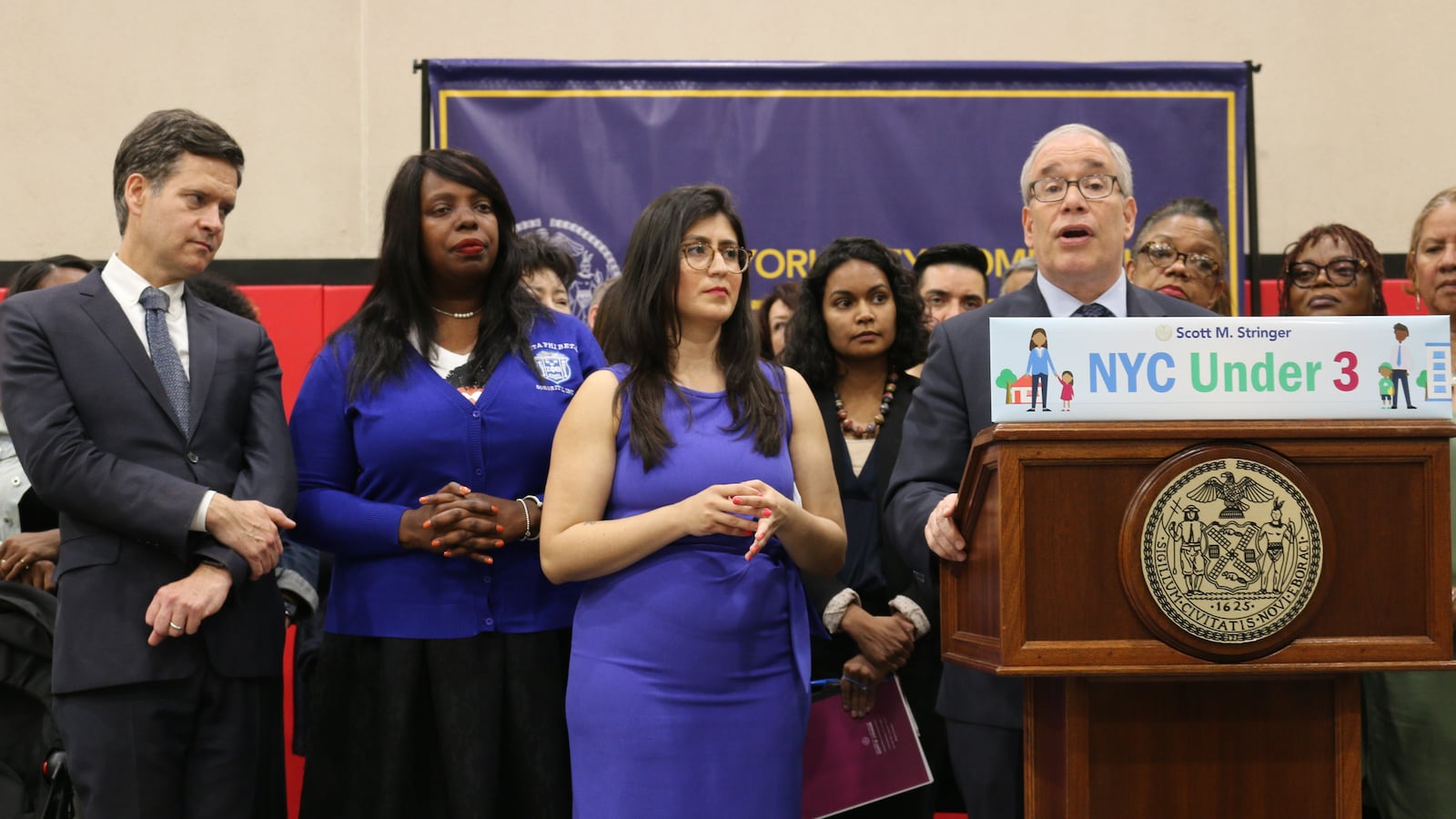The New York City comptroller, with support from some state legislators, is pushing for a new payroll tax to dramatically expand access to affordable care for the city’s youngest children.
A proposed state bill would raise almost $660 million, elected officials say, allowing the city to serve 34,000 more infants and toddlers from birth through age 3.
Calling his plan NYC Under 3, Comptroller Scott Stringer positioned the proposal as a benefit to families and also the city economy by growing the workforce. But he also said that expanding childcare could help improve academic outcomes for students from low-income homes.
“Achievement gaps and inequality don’t start in grade school or kindergarten, or even pre-K,” Comptroller Scott Stringer said at a press conference to announce his plan. “They start on day one.”
The proposal could give Stringer a popular policy to pursue during a widely expected run for mayor in 2020. He appears to be taking a page from Mayor Bill de Blasio’s much-touted early childhood achievements, which have become a centerpiece of his campaign for president. Polls show that addressing the exorbitant cost of childcare for working families has broad support among all voters.
Under the proposal, low- and moderate-income families would pay for childcare on a sliding scale. Care would be free for the lowest-income families, with the fee rising to 12 percent of a household’s income for those earning around $100,000 for a family of four.
But Stringer’s plan could face a steep uphill climb, as it requires support both from the state legislature and City Hall, and could face push-back from the business community.
De Blasio has focused on serving 3- and 4-year-olds. By extending his initiative to children starting in infancy, Stringer would be helping to create a more seamless pipeline from birth to Kindergarten for the city’s most vulnerable children. His proposal also attempts to resolve some of the criticisms and unintended consequences of the city’s rapid expansion of free preschool, such as low teacher pay.
The education department would likely oversee the expanded programs, owing to changes already underway meant to coordinate oversight of early childcare and education from the cradle to college.
The initiative would be funded through a new payroll tax that would cost about $100 a year per employee, according to Stringer. A bill to implement the tax was introduced Thursday with support from state senators Brad Hoylman and Jessica Ramos, and Assemblywoman Latrice Walker. The law would affect companies in New York City with payrolls greater than $2.5 million.
Lawmakers say the tax would cover the cost of expanding childcare to 84,000 children.
“These are the critical years for our babies,” Walker said.
The tax would also cover payments for a proposed city bond that would be needed to cover $500 million in capital investments — a critical piece to making any childcare expansion work, since the city is already crunched for space.
Expanding care for infants could help provide more stability for providers across the city, who say they have seen their enrollments squeezed by the mayor’s pre-K expansion. As they lose students to the city’s own classrooms, independent operators have been left to serve increasingly younger children — which is more expensive partly because smaller class sizes are required.
Operators say the shift in demographics has threatened the financial stability of community-based centers, which the city needs to make Pre-K for All work. To find seats for so many children, the city relies on a mix of independent operators and public schools.
The comptroller recommends studying the true cost of providing care to determine new reimbursement rates for the centers, including salary boosts for teachers. One persistent criticism of de Blasio’s pre-K program is that teachers in community centers are paid far less than their public school counterparts — a discrepancy that almost led to a strike earlier this month. Stringer’s plan also builds in $25 million to pay for teacher training and education scholarships, which could help strengthen quality.


